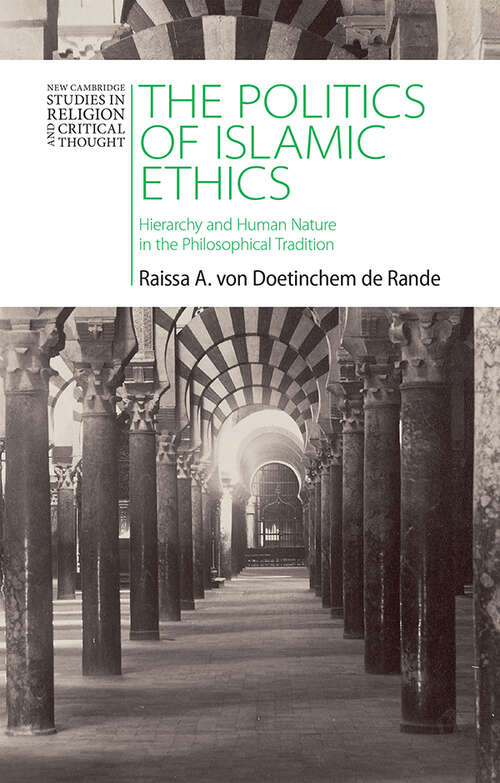
The Politics of Islamic Ethics: Hierarchy and Human Nature in the Philosophical Tradition (New Cambridge Studies in Religion and Critical Thought)
Islam
Synthetic audio, Automated braille
Summary
Fundamental to Islamic thought is the idea that there is a way that human beings simply are, by nature or creation. This concept is called fiṭra. Rooting her investigation in the two central passages in the Qur'an and Hadith literature,… where it is asserted that God created human beings in a certain way, the author moves beyond discussion of the usual figures who have commented on those texts to look instead at a group of classical Islamic philosophers rarely discussed in conjunction with ethical matters. Tracing the development of fiṭra through this overlooked strand of medieval thinking, von Doetinchem de Rande uses fiṭra as an entrée to wider topics in Islamic ethics. She shows that the notion of fiṭra articulated by al-Farabi, Ibn Bajja, Ibn Tufayl and Ibn Rushd highlights important issues about organizational hierachies of human nature. This, she argues, has major implications for contemporary political and legal debates.